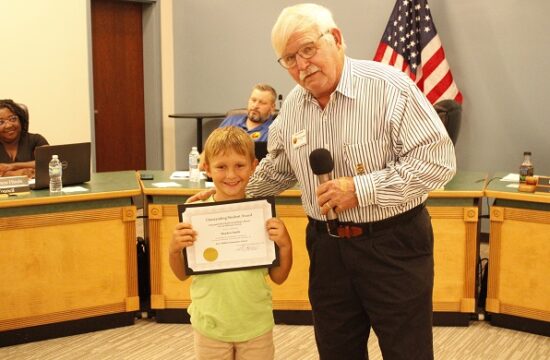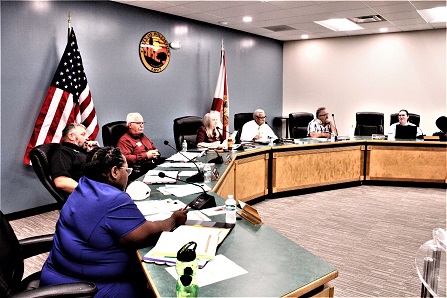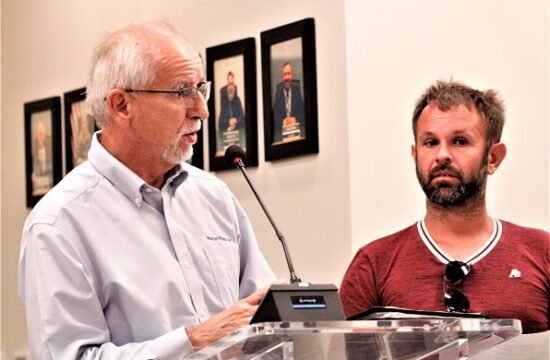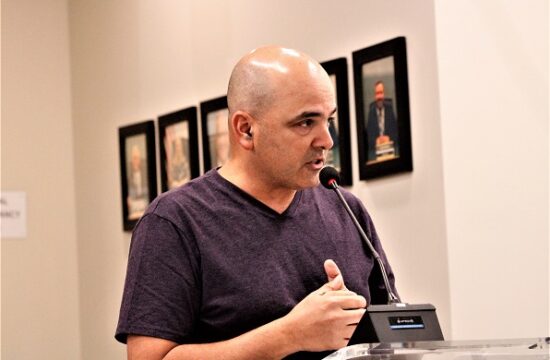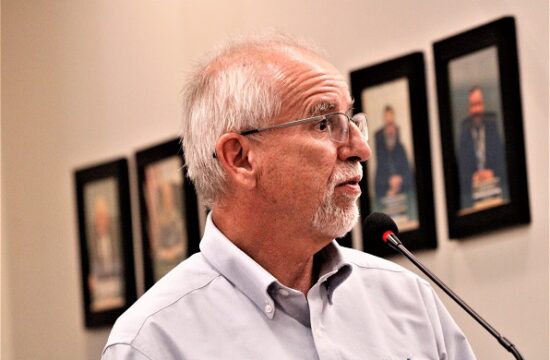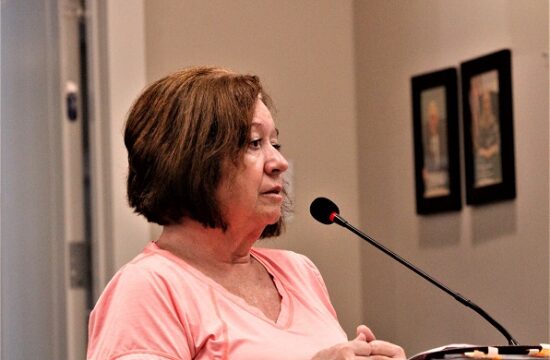By Terry Witt – Spotlight Senior Reporter
Williston Clerk Latricia Wright’s job description was approved by the city council at a Feb. 16 board meeting but one of the most sensitive subjects discussed by the board wasn’t related specifically to her job duties.
The Florida Sunshine Law, which requires council members to meet publicly, was raised by Mayor Jerry Robinson when he asked City Attorney Fred Koberlein to correct him if he was wrong, but “the city clerk can’t poll the council for direction can she?”
One of the tricky parts of the Sunshine Law is that council members can’t poll each other behind-the-scenes in phone calls, emails, texts, or in person before they ever get to a meeting, nor can the clerk or city manager poll the council verbally or in writing.
Koberlein said a poll can be conducted by the clerk, but the results of the behind- the-scenes discussions can’t find its way into a council meeting to be used to decide an issue nor can the issue be decided outside of a council meeting.
“What I’m saying is the city clerk should not be calling each individual council member and saying what do you think about this, what do you think about this, and this is what I’m going to do, and this is what a majority told me,” and then use the information in a meeting of the council, Koberlein said.
Koberlein said the clerk can’t be used as a conduit to relay information between board members. The same is true of the city manager.
Councilman Elihu Ross, senior member of the board, asked who supervises the clerk and who does she report to on a day-to-day basis. The council generally agreed she answers to all five council members but works cooperatively with the city manager, not for the city manager. Both are charter officers.
Council President Justin Head said his opinion is that the city clerk, much like the city manager, reports to the entire council, but he said on minor day-to-day issues, Wright typically contacts him as the council president, often by using texts. He felt it was impractical for her to contact everyone on the council for minor issues. However, he doesn’t want to be the one person the clerk reports to.
“We’re all going to evaluate that person. That position answers to all of us,” Head said. “My opinion, just in day-to-day operations, if the clerk is out or comes in late or this or that, I think the clerk has to report to the entire council but it’s just not practical to do that on a daily basis for minor things.”
Councilwoman Debra Jones asked Head if he was saying the information about how the council president communicates with the clerk shouldn’t be written into the job description. Head said he was thinking about the issue.
“I don’t know if that is a major issue,” he said.
Jones said the clerk can notify everybody if she’s not going to be at work.
Head responded, “The city manager doesn’t do that, does she?”
Councilwoman Marguerite Robinson responded that Wright normally sends an email to her as the council vice president and Head as the president and copies the city manager if it’s a major issue. Robinson said she thinks Wright’s notifications should go to the president, vice president, city manager, and deputy city manager, “and let them go do the rest of us.”
City Manager Jackie Gorman said every city employee must comply with all Human Resources policies when it comes to leave requests, time off, that sort of thing.
“We have to honor that. All timesheets will have leave requests,” she said.
She said she would try to prepare a calendar listing all employee leave requests.
Wright said if she is sick and takes time off, she is going to tell Gorman and Deputy City Manager C.J. Zimoski. She said any requests for vacation time include the full length of her time off.
Jones responded -“My question; is a group text the same as a group email because emails are saved?” She wondered if texts would be saved.
Head said that Wright typically contacts him by text.
“It’s more user-friendly,” he said.
Jones suggested all the discussions about the clerk’s position be included in the minutes of the Feb. 16 meeting. Wright records the minutes for council meetings.
On the specific issue of job duties, Gorman said Wright doesn’t have a four-year bachelor’s degree, which is one of the requirements for the clerk, but she has the equivalent of a degree by having worked for former Clerk Fran Taylor in the clerk’s office for a period of time. The clerk’s job requirements require a four-year degree in public administration or four years of responsible administrative job experience in the same field.
Gorman said the job description also contains a requirement that Wright must become certified as a clerk within five years. The Florida Clerk’s Association provides certifications as does the International Association of Clerks. Gorman said it takes time to participate in all the courses, hence the reason for giving the clerk five years to complete the coursework.
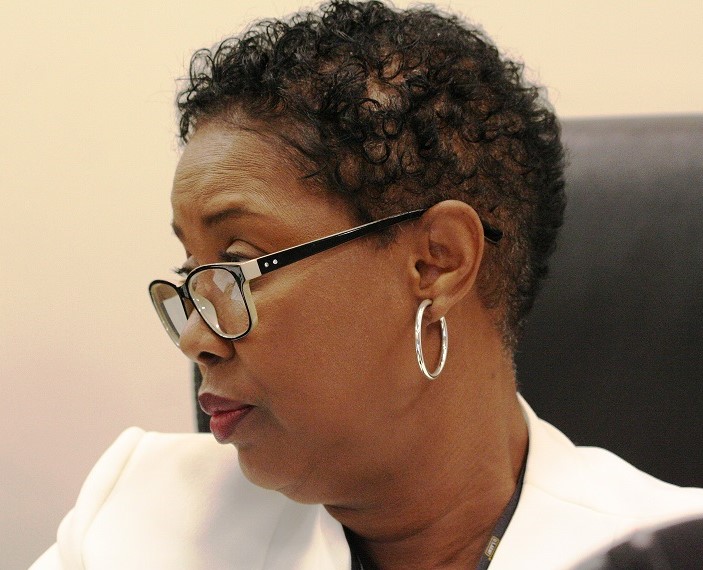
The council agreed to Jones’ suggestion to add language to the job description that the clerk would continue to handle special events as she has in the past when she worked under Taylor. The language wasn’t included in the final draft of the job description.
The clerk has an extremely complex job. She is the clerk to the board, runs municipal elections, qualifies candidates, is the records custodian, and handles public records requests to name just a few of her duties. A full list of her job duties can be found in the Feb. 16 agenda. The agenda hadn’t been published on the city’s website as of Saturday, Feb. 27.
—————-
City of Williston Regular Meeting February 16, 2021; Posted February 27, 2021



